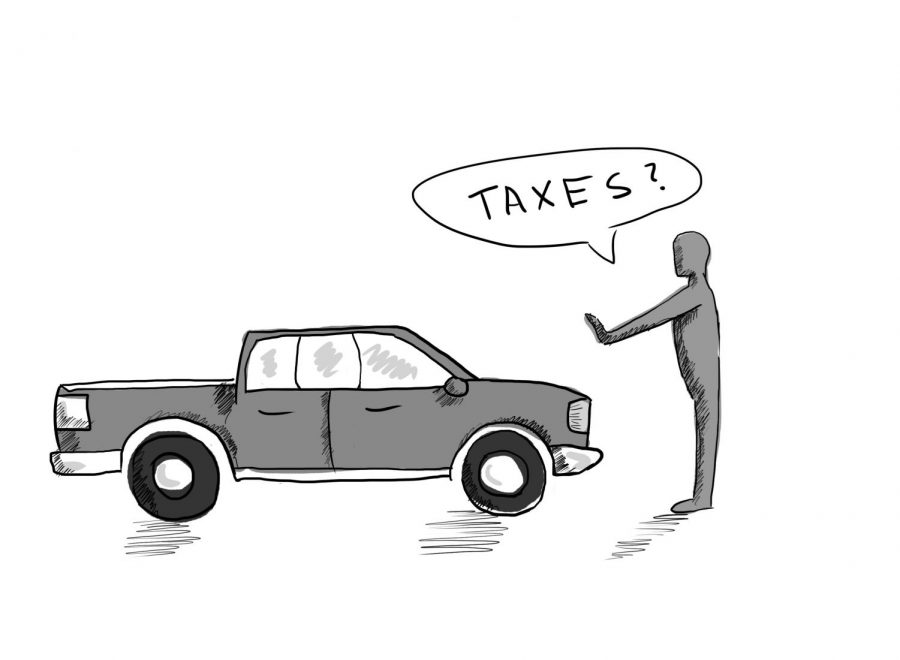Washington State loses transportation funding with passage of I-976
December 3, 2019
I-976, short for Initiative Measure No. 976, is a ballot initiative that was written by anti-tax activist Tim Eyman.
Eyman is widely regarded as a frequent initiative-filer of anti-tax measures. Tangentially, Eyman’s associate, Citizen Solutions — a signature gathering firm — was recently found guilty in a campaign finance case for misleading donors by failing to accurately disclose the usage of donations. Eyman’s campaign and pockets were filled without donors’ knowledge, and as a result, Citizen Solutions was penalized with a $1.1M fine.
Despite Eyman’s generally negative reputation, his initiative (I-976), titled “Bring Back Our $30 Car Tabs,” gained significant traction, and an eventual victory. The initiative was summarized by Peter B. Gonick, Deputy Solicitor General, as follows:
“This measure would repeal or remove authority to impose certain vehicle taxes and fees; limit state and local license fees to $30 for motor vehicles weighing 10,000 pounds or less, except charges approved by voters after the measure’s effective date; base vehicle taxes on Kelley Blue Book value; require regional transit authorities to retire bonds early where allowed; and either reduce or repeal taxes pledged to bonds depending on whether bonds are retired by 2020.”
What the summary didn’t address was the implications of cutting vehicle taxes that are currently levied in over 100 cities and counties across Washington. These areas, called Transportation Benefit Districts, or TBDs, have adopted additional taxes to fund transportation projects. Sound Transit, one such project, has been estimated to lose several billion dollars’ worth of funding, which would severely hamper their plans to expand public transportation.
On Nov. 13, the city of Seattle and King County, alongside numerous transportation agencies, filed a lawsuit in King County to block the implementation of I-976, which would otherwise go into effect on Dec. 5. Court hearings were held on Nov. 26, and the county’s judge granted a preliminary injunction the following day. This means that I-976 measures are suspended until the county court makes a decision on the initiative’s constitutionality. However, it is likely that the losing party will send the case to the State Supreme Court, prolonging the ultimate ruling on the matter.
Amy Molitor, Senior Adjunct Assistant Professor of Environmental Studies and Sport Studies, provided her opinion on whether voters should have passed I-976.
“I would’ve preferred they voted no,” Molitor said. “We would’ve kept the original taxes. We would’ve taxed the use of cars such that those funds would be available for various transportation projects and supporting public transportation across the state.”
Molitor suggested that the way the initiative was phrased on the ballot may have played a role in the vote’s outcome.
“It’s very difficult — the way it’s worded on the ballot is not necessarily the way we intuitively think sometimes,” Molitor said.
Molitor recalled Eyman’s original $30 car tab initiative that was passed by voters in 1999.
“Once it was put to $30, there was significant loss in funding for proposed improvements to our transportation and infrastructure, as well as particularly, public transportation,” Molitor said. “The same thing has just happened in the last month. There’s going to be a significant loss in funding for connectivity between communities and within communities. And I think it will be significant, particularly for lower socioeconomic groups that may not be able to afford a vehicle.”
Molitor also outlined the potential impact that this initiative could have on the state’s transportation habits.
“The biggest factor is that we’re not moving forward, we’re continuing to maintain… If I only have to pay $30 to register my vehicle, it facilitates people buying more cars, using more cars,” Molitor said. “And so, automatically, the loss of that money from those car tabs is not going to allow us to invest in more light-rail — economically and environmentally appropriate means from moving from community to community. [Instead,] we will each be having and driving our own vehicle.”






